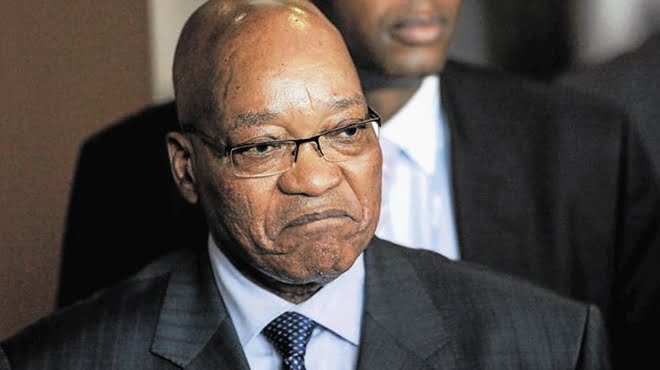The history books will one day teach that today’s events in Parliament could have brought about a crucial turning point in the tragic deterioration of South Africa and put it back on the road to a capable state where the rule of law is supreme.
Ten, twenty years from now analysts will look back and be surprised at how a country with so much going for it had allowed one man, his enablers and his blessers to steal its future.
Political scientists will one day write about the textbook case of the creation of a parallel state by a small group of politicians and a predator elite in the private sector, and they will speculate how it was possible in an open society with a brilliant constitution, a once robust political culture and strong institutions.
Six years ago an ambitious vision for South Africa in 2030 was revealed – the National Development Plan.
Its proposals and guidelines envisaged higher employment through faster economic growth, improving the quality of education and training, building the capability of the state, increasing accountability, building on social cohesion, uniting all citizens and unlocking their energies.
Not only did we not achieve any of these, we’ve actually gone backwards.
The roots of some of our present sins and weaknessess can be spotted during the presidencies of Nelson Mandela and Thabo Mbeki, like cadre deployment and political interference in the criminal justice system.
But this occurred on a small scale and we were forgiving, because we realised that it would take time for the new democracy to mature and for a liberation movement to grow into a political party in charge of a modern democracy.
And then Jacob Zuma hit us in 2008.
He promised a Second Transition, a strong developmental state, millions of new jobs and a blossoming, inclusive economy.
Nine years later our democracy is badly scarred, many of our national institutions are compromised, our polital ethos is in tatters and our economy limping through a recession.
Our unemployment figure is at 27,7 percent, the highest since 2003, and growing, while Cabinet ministers keep on making decisions that wound the economy even more.
Large chunks of the state have been sold for truckloads of silver shekels to three brothers from India, brothers who had ensconced themselves so deeply in power that they control ministries and state-owned companies and succeeded in corrupting our national discourse.
We see their hand in the catastrophic firing of two highly competent finance ministers, Nhlanhla Nene and Pravin Gordhan, that made a credit downgrade inevitable.
Here’s the silver lining: the “good guys” are pushing back, pushing back hard to take back our democracy and restore our national dignity.
Today’s motion of no confidence in Zuma is the eighth of its kind, but the first one to be taken seriously by everybody, even Luthuli House.
The media, the churches, the trade unions, the ANC and UDF veterans and an array of civil society organisations are standing up against corruption and state capture with new energy and commitment.
The turnaround came with the Nkandla scandal. Actually, no, it came when the former public protector called it a scandal, and the Constitutional Court agreed.
The new mood got momentum after Zuma fired Nene and then Gordhan, clearly under pressure from Saxonwold; when ministers openly started doing the Guptas’ bidding; when the billions stolen from Eskom, the SABC, Prasa and other state-owed enterprises were exposed; when the Gupta email leaks got served up every day with breakfast, lunch and supper.
But without a final push, a decisive breakthrough, this state of affairs can continue for months and months and inflict further irreperable damage on our economy and society.
If only enough ANC members of Parliament could see this bigger picture, grasp what an historic moment today’s motion of no confidence could be, and find the courage and patriotism to draw a line in the sand.
Oh well, I suppose hope springs eternal in the human breast.
